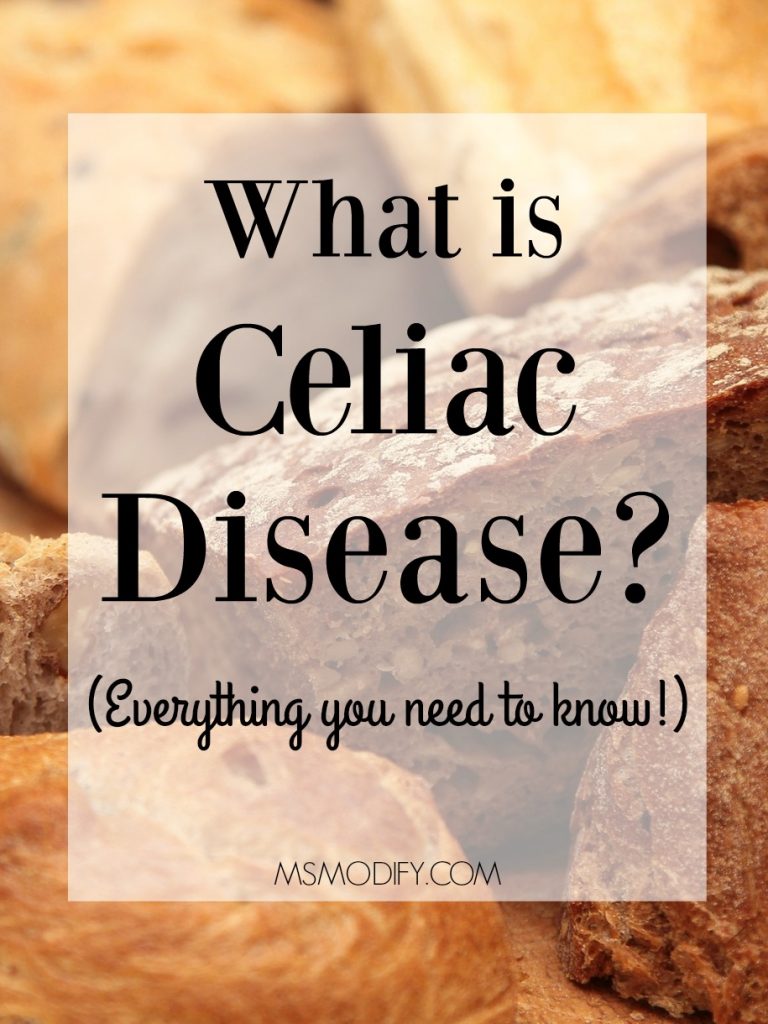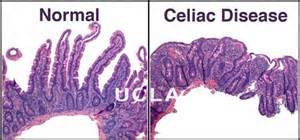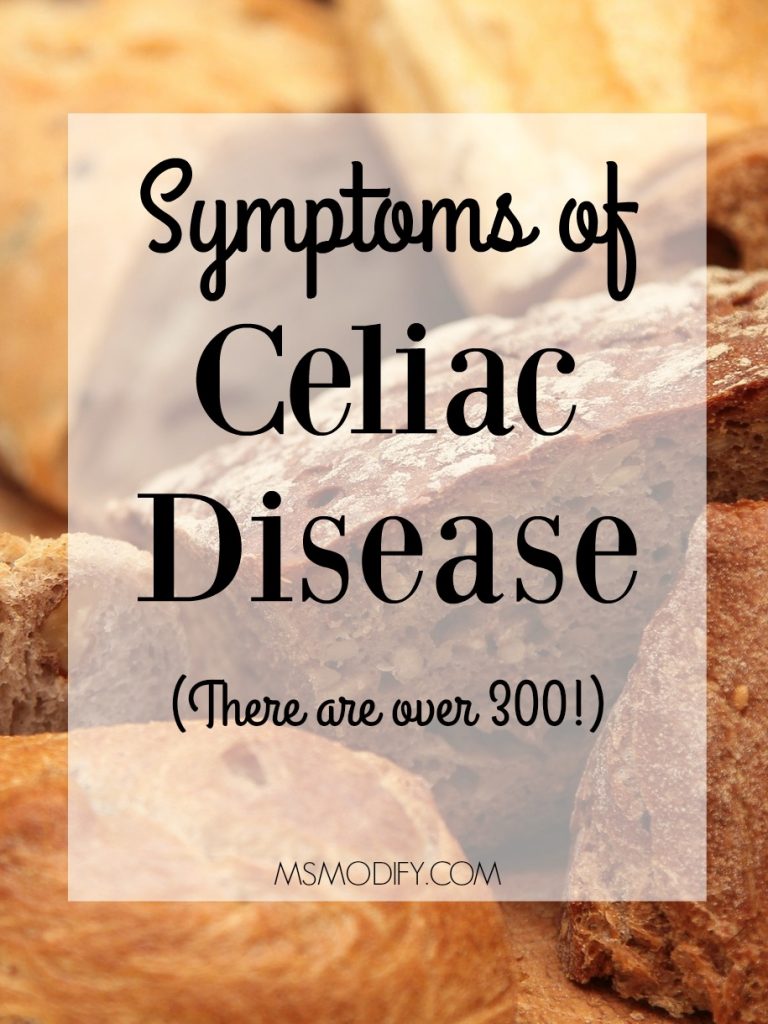(*I am not a medical professional, so please consult your doctor with symptoms, concerns, etc.)
I get asked that question a lot. First off, it is NOT an allergy. People with celiac disease are not allergic to gluten.
I’ll be honest, when I go out to eat I often tell the server “I’m severely allergic to gluten” because the word “allergic” tends to scare them and the word “severely” really makes them take me serious. I’ve learned “celiac” doesn’t mean much to most servers.
Celiac disease is an autoimmune disorder affecting the small intestine. Gluten triggers the body to have an autoimmune reaction.
What is gluten?
That word seems to be so trendy right now, right?! Side note: I had a friend tell me she was on a gluten free diet and I asked her what gluten was and she said “bread” Ahhh… NO people!
Gluten is the protein found in wheat, rye, and barley (some people can’t tolerate oats).
What happens to your body if you have celiac disease and consume gluten?
Gluten causes an immune reaction (attacks and damages) to your body, which causes inflammation to the intestine and shortening of the intestinal villi. Nutrients are absorbed through the villi, so when your body is having an autoimmune reaction to gluten, the villi shrink together and your body cannot properly absorbs nutrients.
That’s why people with celiac disease often have poor absorption and vitamin deficiencies. I think of the villi as fingers which are normally open but when your body is having an autoimmune reaction the fingers tighten together into a fist; not allowing nutrients to pass through.
What is the prevalence of celiac disease?
Celiac affects 1 in 133 people in the US and more than 95% of people with celiac are still undiagnosed!
You can have gluten intolerance without having celiac disease. Meaning your body does not tolerate gluten and you feel sick, but you do not have the autoimmune disease (celiac).
There are over 300 symptoms! What I feel, you may not ever experience and vice versa. I think this is the reason why people suffer so long before getting diagnosed… because there are no clear cut symptoms.
Some of the most common symptoms include:
• Digestive Problems (diarrhea, constipation, bloating, gas, acid reflex, IBS, etc)
• Migraines/Chronic Headaches
• Chronic Fatigue
• Brain Fog
• Anemia/Vitamin Deficiencies
• Eczema / Skin Rashes/Itchy, Blistery Skin
• Depression/Anxiety
• Joint Pain/Muscle Pain/Numbness in fingers and hands
• Osteoporosis
• Infertility
*Symptoms in children can be different.
How to get tested?
Blood test and endoscopy.
**Don’t start a gluten free diet until you’ve been tested. Once you’re gluten free it can cause the tests to come back normal, when in fact you have the disease! If you’re already gluten free, you can do genetic testing to see if you’re a carrier for the celiac genes. If you’re a carrier that means you could have or develop the disease at any time but doesn’t necessarily mean you have it. If you don’t have the genes, then you don’t need to worry about having or getting celiac disease.
What is the treatment?
The only treatment for celiac disease is a lifelong strict gluten free diet. The risk of nutritional deficiencies, other autoimmune diseases, and cancer make it crucial to be on a strict gluten free diet as well as ongoing monitoring by a doctor.
Resources I recommend:
Like I said before, I’m not a doctor or an expert on celiac disease… but I did suffer a long time without knowing what was wrong and doctors telling me it was in my head. I’ve learned to understand my body and listen to it when things are not feeling right. I hope we can go through this journey together! I would love to hear your stories and experiences!
Happy gluten free eating!





How do you get a diet that is completely free of gluten
That’s a great question! Here is a post I did on what you can eat on a gluten free diet. http://msmodify.com/what-can-i-eat-on-a-gluten-free-diet/ Look over it and if you have questions, let me know!
Thanks for posting this article. I was diagnosed with celiac in 2009, after many years of gastro distress and extreme anemia. Several endoscopies and many blood tests later, I had a definite answer for my ailments. I am religious about my diet and I researched celiac carefully. Anyone with this disease needs to take it very seriously. Don’t eat the food if you are leary of how it was prepared. Many hosts and restaurants don’t take this seriously. Beware!!
I agree, eating out at restaurants or at other peoples houses is hard. I typically pack my own food with me pretty much everywhere unless I completely trust the place!
Sorry, I have learned to pretty much eat at home, eat my own cooking to feel well. As the person above posted, most servers and cooks don’t have a clue what celiac is, and unfortunately, are unable to provide safe meals, even with the best intentions. I have pretty much given up eating out, and even worse,trusting friends who try to provide safe meals for me. It’s complicated and took me a very long time to realize how many items are contaminated with gluten, so how can the average person understand? It took a year to get over the resentment, but it it does get easier over time.
I agree, Annie! You’re right, it took me a long time to understand cross-contamination, so how can I expect others not affected by celiac to “get it”.
My husband finally gets it. I’m not trying to be difficult. I’m not trying a trendy diet. I can’t count the times I have told him go ahead and eat….. just don’t kiss me after you have eaten a tuna sandwich or birthday cake. Yes it just takes the smallest amt. I am also allergic to tuna, lobster and cod. After almost dying and having to have 5 shots of epinephrine I take my health pretty seriously and you never ever get a cheat day.
Thank you all for posting this and the comments, my friends do not understand how serious this is.
I look forward to following your site and seeing what you have to offer. I have spent 40 years being treated for severe migraines. The first 20 they treated me with a rollercoaster ride of hormones, finally after a complete hysterectomy my 1st neurologist and I discovered my wheat allergy – now i have many allergies and have been diagonast with celiacs as well.
Glad to have you here, Joyce! I hope you’re feeling better now!
I’ve had stomach problems ever since I was little. Everyone thought it was my nerves. Then for years I was told I had IBS. The year 2012 I was in the er with severe stomach pain. I had colitis. They gave me medicine to slow my colon down. I was so miserable. I felt and looked like I was 8 months pregnant!!!. I was sent to a gastroenterologist and had a blood test done. The blood test came back positive for celiac. I was told to go on a gluten free diet. I was very uneducated on celiac or what gluten was even. I find today having a stomach or feeling nautious all the time, or even the ucky bloat feeling is not worth it. I do feel better when I dont eat gluten. People say they are going on the gluten free diet and not for celiac or gluten intolerant, I say they’re nuts!!! True, reading labels and having to be really disciplined to not eat gluten is no easy picnic. The sickness is horrible. I m a migraine sufferer too. I find I experience all those ugly symptoms if I continue trying to eat gluten food. This journey is depressing too. I’ve finally learned to accept it. To realize how much better i do feel. I’m also more energetic when I dont eat gluten. I eat pasta but gluten free. I dont eat bread so I dont bloat. Pasta always made me bloat. I also cannot eat greasy or spicy food. Everytime i do, i get sick!!!. I’m thinking more positive now. I am taking on the celiac and gluten free meals at a more positive level. It’s hard to stay focused but I realize I have too and I’m worth it. I hope I encourage someone.